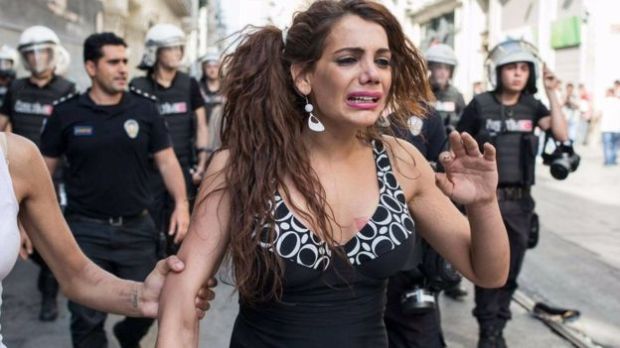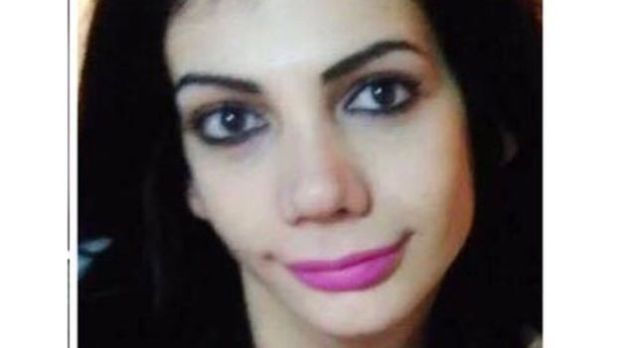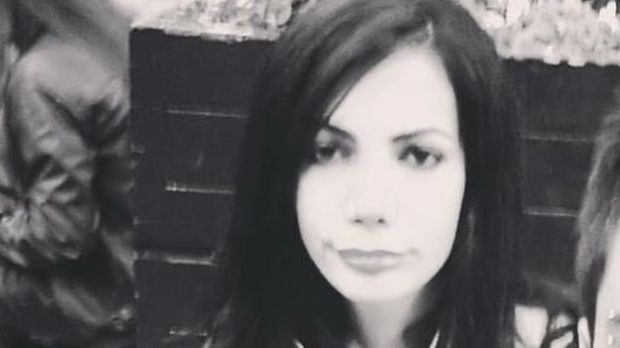The struggle to stay alive in Turkey where trans individuals are pushed to the city’s peripheries as well as the struggle to prove their existence finds life in a sentence that is repeated, emphasized, written at every demonstration: “Don’t be silent, shout, trans exist.”
Source: Rengin Arslan, “Hande Kader cinayeti: Kimse sesimizi duymuyor”, BBC Türkçe, 20 August 2016, http://www.bbc.com/turkce/haberler-turkiye-37141548

“Hande was one of the nicest people in the world. She was very calm normally but also hyperactive. She always went to the LGBTI marches. She pursued a cause that she felt right until the end.”
This is how flat mate Davut Dengiler describes the 23 year old trans woman Hande Kader whose body was found in a forest in Istanbul last week. She was last seen entering a client’s car one night. Davut Dengiler, long hopeful to find Hande alive, ended up finding her in the morgue for unidentified persons in Yenibosna.
“I was about to leave the morgue. I felt a sense of lightness for not having found her there. At the last minute, a doctor there said, ‘there’s also a burned body, look at that as well.’ I did. I told them identifying features. They then looked at the computer, at the report. The doctor put his hand on my back and gave his condolences. I lost myself,” he says of that day.
He then explains Hande’s responses to other deaths, to trans deaths:
“She would go crazy when trans individuals were killed. She’d be so sad. She’d be so courageous the moment she left the house. She’d also be very restless sometimes. She had been stabbed and beaten before. This doesn’t happen only to Hande, it happens to all of them.”
‘The highest number of trans murders in Europe take place in Turkey’
According to Trans Europe’s data, the highest number of trans murders in Europe take place in Turkey. Globally, Brazil is the least safe country for trans individuals.
But “there is no safe country for trans people” as the institution’s 2016 report states.
Hande was someone who tried to call attention to trans murders in Turkey and the injustices she reacted against. She was among those who were in the front rows of demonstrations.
But perhaps it is the images of Hande Kader that has been shared innumerable times on social media that best explain the trans woman who is still waiting to be buried due to identification, autopsy, and DNA testing processes. In 2015, police had banned Pride March organized every year by LGBTI in Taksim and tried to disperse the crowds using pressurized water, rubber bullets, and pepper spray. Despite it all, Hande Kader had not “dispersed” and stood against the police with stubbornness.

At some point in a naive anger, she reproached the journalists who were recording the events. She said, “You take pictures but you do not publish them, no one is hearing our voices.”
Hande Kader and other trans individuals’ unheard voices came this time with the news of her death. In a way that no one wants to think or imagine: by being burned.
Her life, which she tried to earn through sex work, was always in danger. Just like all the other trans individuals who are forced to this, she worked on the street. Just like the others, she sought a way out but could not find it. Her close friend Funda says, “she did not like this work,” and adds, “but who would like it anyway.”
“There are very few trans individuals who die of natural causes”
The trans individuals I spoke to have two commonalities. One is that they are heartbroken by society with the reminder that people went out on the streets in millions after the murder of Özgecan Aslan, who was similarly burned and killed. The second is that nearly all of them have a story on how they “escaped death.”
Kemal Ördek is one of them. Ördek answers my questions and says they were “lucky” to survive an attack in their home.
“There are very few trans individuals who die of natural causes. Nearly none. There are very few trans individuals in Turkey who have reached the age of 50 or 60. When you are pushed to sex work, it’s not possible for people to reach old age. They are killed. I don’t know how I survived. That’s the sad part,” Ördek says.
Ördek completed a degree in international studies in Bilkent University with a scholarship after ranking at the top in the exams and is pursuing graduate studies in sociology in Middle East Technical University. Ördek earns their living mostly through sex work.
“Do they have to be sex workers?”
Kemal Ördek is also the president of Red Umbrella, an association that defends the rights of trans sex workers. I ask them one of the questions that society often asks trans individuals: Do they have to be sex workers?

Ördek says, “We are viewed not as people who can integrate into society but as the dirt of society. What grabs our attention most when we are walking on the street are the looks that see us as sexual objects. That the people who diss us do so through words that suggest they want to be with us. It doesn’t matter if it’s a woman or a man. We are humans who are sexual objects.”
In a time when women who make up half the world combat against inequality and discrimination in the workplace, it appears that trans individuals finding employment in the fields of their education is impossible.
“A never-ending mourning”
Ördek describes their feelings as “a never-ending mourning” when talking about the insecure, vulnerable, and fragile conditions trans individuals face and says,”
“When I first became an activist, I would not be able to sleep thinking about the kind of news I’d get in the middle of the night. Even now, my phone is at the highest ringtone when I sleep at night. I wait for news, someone will be stabbed, someone beaten and I’ll get called and I’ll have to go there immediately. This is a never-ending mourning and state of trauma.”
The identity reassignment process for trans individuals in Turkey is a long and painful one and many don’t dare to because of this. Because of this, trans women can’t change the [gendered] color of their IDs and can’t work in brothels where they may have more security.
Sinem Hun, a lawyer who works closely on trans identity reassignment cases, interprets the relevant gender reassignment article in Turkey’s Civil Law as “the whole of the processes that embody too many rights violations.”
“24 states in Europe require by law that trans people undergo sterilization”
Hun says the state “wants to see” that both trans men and trans women have to received surgeries for their genitalia to establish that the gender reassignment process has been done physically. At the same time, she says sterilization is mandatory.
Hun gives the example of Argentina where gender reassignment is based on the person’s statement and says they have applied individually to the Constitutional Court for the cancellation of the article that forces surgery. She hopes the article could be annulled.
“There are trans individuals who cannot change their identity for 5-6 years,” says Hun and emphasizes that there are very few competent microsurgery doctors for these surgeries and that these surgeries in Turkey are expensive and bring forth a difficult process.
Sterilization is an issue that European countries have yet to agree on. According to Trans Europe’s Trans Rights Europe Index, there are 24 countries that require sterilization for gender reassignment. Among them are Turkey, Russia, France, and Switzerland.
Hungary and Albania do not have legal gender recognition
Sterilization is not mandatory in 15 countries, including Sweden, the United Kingdom, Italy, and Spain.
Gender reassignment is not considered legal in Hungary, Cyprus, Moldova, and Albania, according to the Europe Index.
The struggle to stay alive in Turkey where trans individuals are pushed to the city’s peripheries as well as the struggle to prove their existence finds life in a sentence that is repeated, emphasized, written at every demonstration: “Don’t be silent, shout, trans exist.”
The struggle for society to accept their existence and the struggle to stay alive is together. Legal processes and democratic wins may determine when they’ll be equal citizens in Turkey and other countries but trans, LGBTI individuals, and their allies hope that Hande Kader will be a turning point in trans murders.
Share this:
-
Click to print (Opens in new window)
-
Click to email this to a friend (Opens in new window)
-
Click to share on Facebook (Opens in new window)
-
Click to share on Pinterest (Opens in new window)
-
Click to share on Tumblr (Opens in new window)
-
Click to share on Reddit (Opens in new window)
-
Click to share on Pocket (Opens in new window)
-
Like this:
Like Loading...





